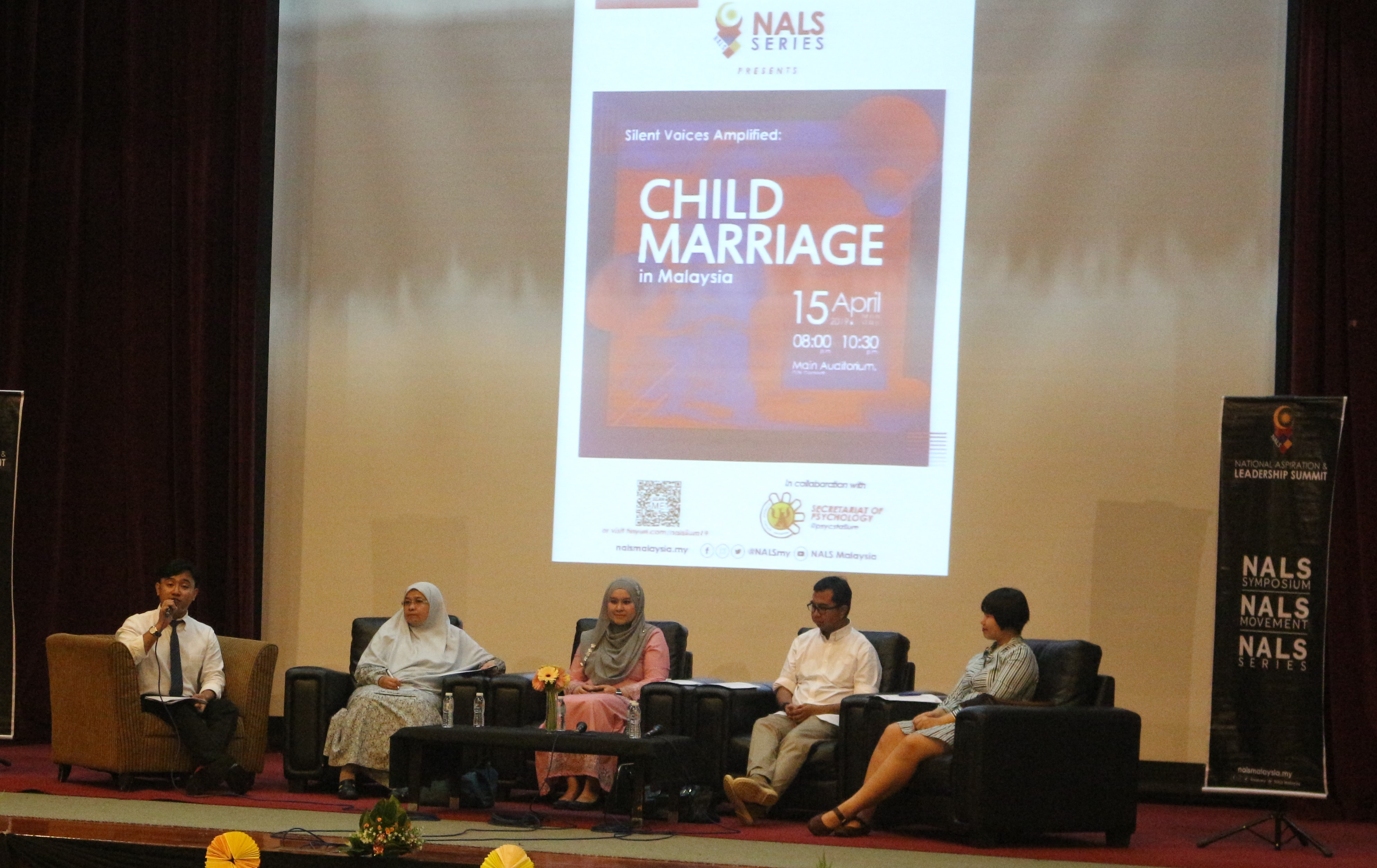By Nur Fatihah Zaini
GOMBAK, 19 April 2019 – A National Aspiration and Leadership Summit (NALS) forum series 2019 held recently strongly advocated a nationwide legislative ban on child marriage.
The event, a collaboration with IIUMs Secretariat of Psychology (PSYCSTA), took place on Monday (15 April) at IIUMs Main Auditorium, aimed at spreading awareness among the community and in bringing a major change in future. It was open to all IIUM students as well as the public.
With the tagline œSilent Voices Amplified: Child Marriage in Malaysia, NALS series 2019 proposed Malaysian youth to partake and to play a part in making a change in Malaysias legislation with regards to underage marriage.
Among prominent speakers were two lecturers – Professor Dr. Najibah Mohd Zin from Ahmad Ibrahim Kulliyyah of Laws (AIKOL), and Dr. Hilwa Abdullah from School of Psychology and Human Development, Faculty of Social Sciences and Humanities, Universiti Kebangsaan Malaysia (UKM).
Two other speakers were popular activists Syed Azmi Alhabshi, who is chairman for Pelindung Kanak-Kanak Wilayah Persekutuan, and Shaney Cheng, a senior co-worker in Protect and Save the Children association.
The discussion of the issue focused on legal matters, religion, authority and the psychological implications on the victims.
Dr. Hilwa Abdullah and Prof. Dr. Najibah spoke of child marriage in Malaysia often associated being with poverty and people living in rural areas.
However, Syed Azmi highlighted: œPoverty may be the reason but it is not the only reason. There are better choices and these children need to see these better options.
Shaney shared her views: œSome parents who forced their children are not aware of the implications that child marriage could bring to the family and society.
Moreover, Dr. Hilwa Abdullah said that child marriage could affect childs psychological state of mind, where depression has become very common. Hence, she emphasised that a child who is not ready mentally and physically cannot be considered into a marriage.
œIf a girl is able to do the housework, the boy is held responsible, thus the court will take some thing into consideration provided both parties are under 18 or 16, Dr. Najibah said. She also mentioned that majority who applied for marriage are found to be under 15.
Meanwhile, Shaney said, “It is everyones fault; NGOs, parents and the society, but it is never the childs fault. Syed Azmi felt that the government needs to provide a safe place for the victims to ensure their security and development.
Noteworthy, the speakers agreed that parents guidance and attention are crucial in preventing this issue from worsening. ***
